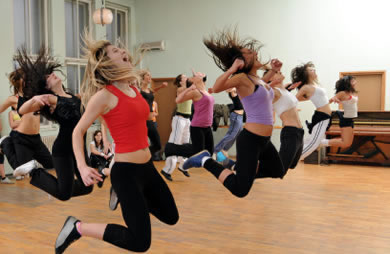|
Tai Chi has become an increasingly popular form of exercise for all age groups, but current research has shown how it can be especially beneficial for older individuals. This graceful sequence of gentle, flowing movement combines physical postures with mindful focus, making it a great fit for those who find other forms of exercise too strenuous. But Tai Chi isn't only used for relaxation purposes--it may also be a useful exercise for those working toward weight loss. In a study that observed obese postmenopausal women, the subjects that participated in three 45-minute Tai Chi classes a week lost similar amounts of body fat as the diet-only group, but maintained greater muscle mass (meaning that the group lost less muscle or fat-free mass as a result of dieting). Additionally, several studies have suggested that postmenopausal women who regularly do Tai Chi may maintain a greater level of bone mineral density than women who don't include that type of exercise in their routine. One study in particular found that Tai Chi practitioners have a higher lumbar and femur bone mineral density than people of a similar age who are sedentary. As a result of these and other studies in this field, Tai Chi has been proposed as a good alternative to other types of exercise for women with low bone mineral density, as it also improves balance and has low risk of injury. The basic foundation of Tai Chi consists of a rhythmic sequence of movements that integrate focused breathing and mindfulness to help reduce stress and reach a state of calm energy. The intensity of the practice depends on the type of Tai Chi as well as level of expertise. There are many styles to choose from to fit a wide range of physical abilities. The main focus in Tai Chi is on improving form, not attaining great strength or cardio gains, so even people who are not fit can take part in this type of exercise. The melding of focused breathing with each movement creates a relaxing, tension-decreasing state that can last far beyond the duration of the exercise period. Key Benefits of Tai Chi: -Requires no equipment -Improves balance -Helps reduce anxiety and depression -May reduce fall risk in older individuals -Improves endurance and agility -May help lower blood pressure -Can improve mental focus and well-being -Improves sleep quality -May improve bone mineral density -Helps to maintain muscle mass during weight loss What's great about Tai Chi is that nearly anyone can practice it and work at their own pace and ability. The gentle movement allows even those with joint and strength issues to safely take part in a Tai Chi program. The Arthritis Association promotes Tai Chi as a beneficial exercise for those with arthritis, and offers Tai Chi classes in many areas. You can check out what's available near you by clicking here. for DVDs that offer great instruction specifically for women who would like to learn Tai Chi, click here. Would you be interested in trying Tai Chi? If you already do Tai Chi, how has it helped you? |
Popular EntriesRelated Entries
More From SparkPeople
|























